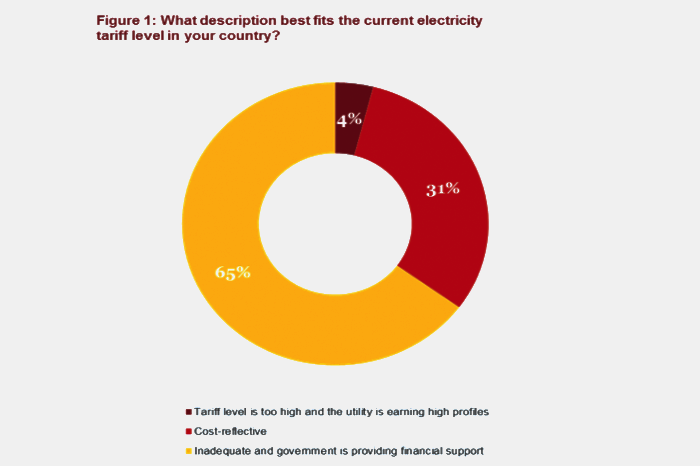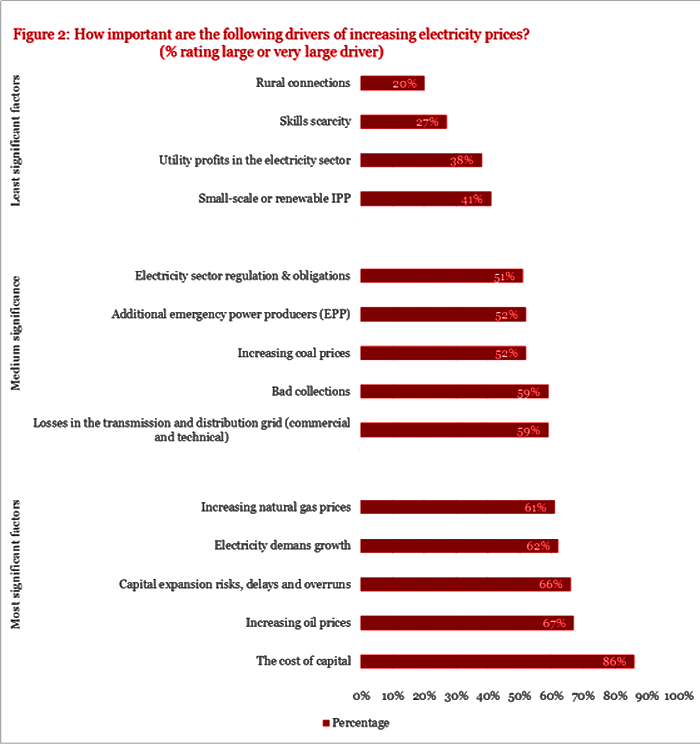
The power sector in Africa. Challenges and prospects (Part 3)
This article is an extract from the PwC Power and Utilities Survey, 2015. The Survey covered 15 Sub-Saharan African countries including Ghana.
Affordability and cost recovery
As African countries seek to expand investment in the power sector, affordability is coming under strain. For a long time many policymakers have been striving to implement tariff levels that reflect the costs of electricity.
The continuing need for the development of regulatory frameworks on matters such as cost- reflective tariffs, alongside increased country risk in many African countries compared to other parts of the world, has the effect of increasing the cost of capital for power sector investment.
Advertisement
In the view of our survey respondents, the cost of capital is the most important factor behind increasing electricity prices (figure 2).
To some extent, there is a ‘chicken and egg’ dynamic going on here for end users – you can’t reduce the price pressures coming from the cost of capital until you increase the price itself.
With so much of the power sector focused on infrastructure expansion and renewal, the risk of capital project risks, delays and overruns is seen as an important factor behind electricity price increases by two-thirds of survey respondents.
Oil and gas pricing pressures are also cited by many respondents. Although hydro is a major source of power in much of the continent, fossil fuels remain the single largest source of electricity in Africa.
Despite the recent fall in the oil price, survey participants still identify oil prices as a key factor in electricity prices, perhaps mindful of the longer- term build-up of oil price pressure and the reliance of emergency power supply on oil.

Other reasons for price increases, such as commercial and technical losses and bad collections, continue to be major challenges for power utility companies. In a number of countries, emergency energy solutions, which constitute a large part of installed capacity, entail generation costs that are much higher than the cost of conventional generation and are also cited as a significant contributor to higher prices.
Score from 1–5, where 1 = very low impact and 5 = very high impact.
About PwC
PwC firms help organisations and individuals create the value they're looking for. We're a network of firms in 157 countries with more than 208,000 people who are committed to delivering quality in assurance, tax and advisory services.
